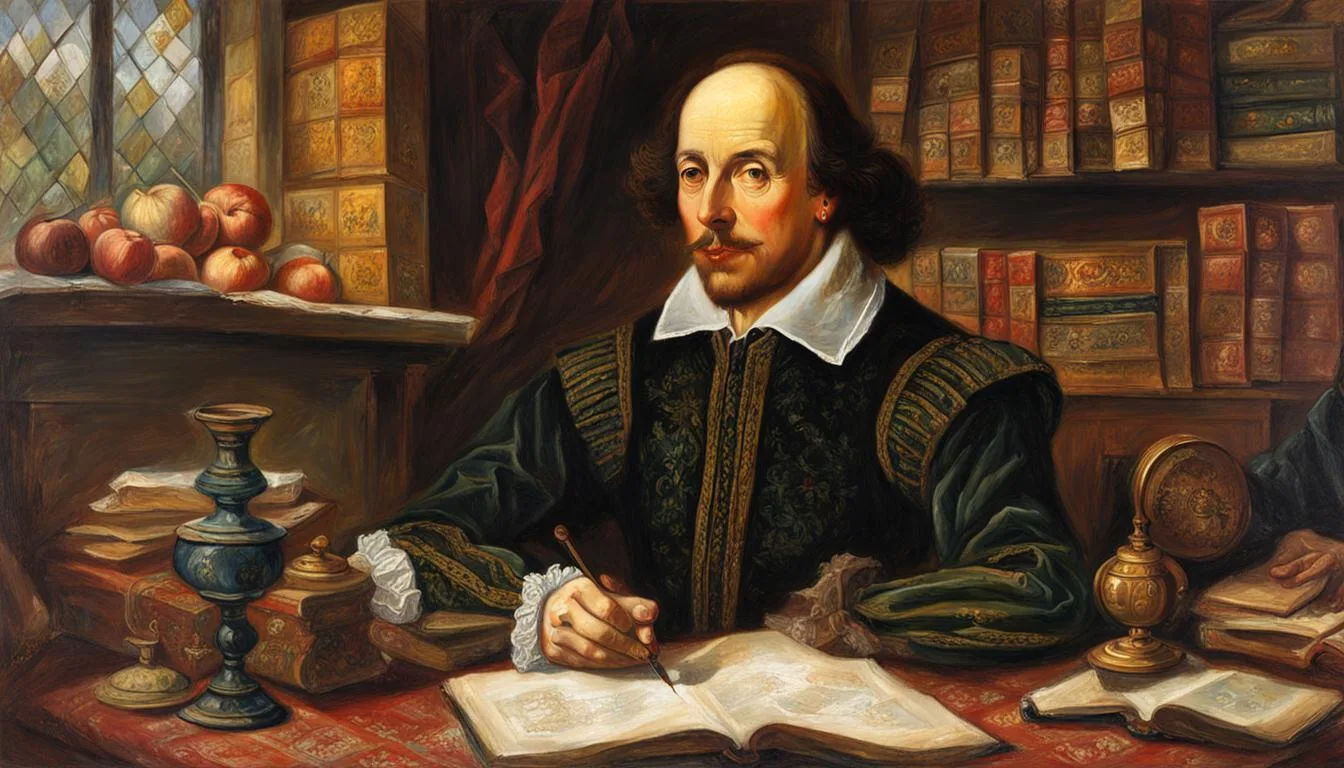Sonnet VI by William Shakespeare Then let not winter’s ragged hand deface, In thee thy summer, ere thou be distill’d: Make sweet some vial; treasure thou some place With beauty’s treasure ere it be self-kill’d. That use is not forbidden usury, Which happies those that pay the willing loan; That’s for thy self to breed…
William Shakespeare

William Shakespeare (1564-1616) was an English poet, playwright, and actor, widely regarded as the greatest writer in the English language and one of the world’s most influential authors. Born and raised in Stratford-upon-Avon, Warwickshire, he married Anne Hathaway at the age of 18 and had three children with her.
Shakespeare’s career began in London, where he became a successful actor and playwright. He was a member of the Lord Chamberlain’s Men, a playing company that later became the King’s Men under the patronage of King James I. Shakespeare wrote approximately 39 plays and 154 sonnets throughout his career, spanning multiple genres including comedies, tragedies, and historical plays.
Some of his most famous works include “Romeo and Juliet,” “Hamlet,” “Macbeth,” “King Lear,” “Othello,” “A Midsummer Night’s Dream,” and “The Merchant of Venice.” His plays have been translated into every major language and are performed more often than those of any other playwright. They continue to be studied, adapted, and reinterpreted to this day.
Shakespeare’s works have had a profound influence on literature, theater, and the English language itself. He introduced hundreds of new words and phrases into the English vocabulary, and his characters and themes have become iconic in Western culture.
Despite his fame, much of Shakespeare’s personal life remains a mystery due to the scarcity of surviving records. He retired to Stratford in his later years and died there in 1616 at the age of 52. His legacy as a literary giant continues to inspire and captivate audiences around the world.
Poems:
- Sonnet VI by William Shakespeare
- William Shakespeare Sonnet VIII
- Song of the Holly by William Shakespeare
- X. by William Shakespeare
- Macbeth (ACT IV. SCENE I.) by William shakespeare
- Over Hill, Over Dale by William Shakespeare
- THE WORLD’S WAY by William Shakespeare
- My mistress’ eyes are nothing like the sun by William Shakespeare
- Sonnet #18 by William Shakespeare
William Shakespeare Sonnet VIII
Sonnet VIII by William Shakespeare Music to hear, why hear’st thou music sadly? Sweets with sweets war not, joy delights in joy: Why lov’st thou that which thou receiv’st not gladly, Or else receiv’st with pleasure thine annoy? If the true concord of well-tuned sounds, By unions married, do offend thine ear, They do…
Song of the Holly by William Shakespeare
? Song of the Holly by William Shakespeare Blow, blow thou winter wind? Thou art not so unkind As man’s ingratitude! Thy tooth is not so keen, Because thou art not seen, Although thy breath be rude. Heigh ho! sing heigh ho! unto the green holly: Most friendship is feigning, most loving mere folly. Then…
X. by William Shakespeare
X. ?by William Shakespeare ?? Crabbed age and youth ???? Cannot live together ?? Youth is full of pleasance, ???? Age is full of care; ?? Youth like summer morn, ???? Age like winter weather; ?? Youth like summer brave, ???? Age like winter bare; ?? Youth is full of sport, ?? Age’s breath is…
Macbeth (ACT IV. SCENE I.) by William shakespeare
Macbeth (ACT IV. SCENE I.) by William shakespeare A cavern. In the middle, a boiling cauldron. Thunder. Enter the three Witches. ? FIRST WITCH. Thrice the brinded cat hath mew’d. ? SECOND WITCH. Thrice and once the hedge-pig whined. ? THIRD WITCH. Harpier cries, “‘Tis time, ’tis time.” ? FIRST WITCH. Round about the cauldron…
Over Hill, Over Dale by William Shakespeare
William Shakespeare?(1564-1616) Over Hill, Over Dale “Over Hill, Over Dale” Over hill, over dale, Thorough bush, thorough brier, Over park, over pale, Thorough flood, thorough fire. I do wander everywhere, Swifter than the moone’s sphere. And I serve the Fairy Queen, To dew her orbs upon the green; The cowslips tall her pensioners be, In…
THE WORLD’S WAY by William Shakespeare
William Shakespeare was born at Stratford-on-Avon in April, 1564, and died there April 23, 1616. His fame rests chiefly upon his dramatic compositions. His two narrative poems, “Venus